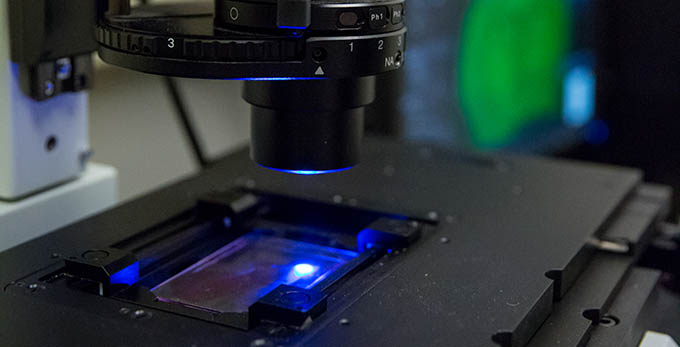University of New Mexico researchers have joined in an important new study demonstrating that newly diagnosed COVID-19 patients who promptly receive an infusion of antibody-rich convalescent plasma face substantially less risk of being hospitalized.
In a paper published earlier this week in The New England Journal of Medicine, a team led by scientists at Johns Hopkins University School of Medicine and the Johns Hopkins Bloomberg School of Public Health reported that patients who received the plasma within nine days of the onset of symptoms had a 54 percent reduced chance of hospitalization.
The finding has important implications for developing countries or communities in which newly developed antiviral medications may not be available, said Jay Raval, MD, an associate professor in the UNM Department of Pathology who led UNM’s contribution to the study.
“It’s a win all around,” Ravel said. “A tool like this would be huge here in New Mexico in keeping people out of the hospital.”

It’s a win all around, a tool like this would be huge here in New Mexico in keeping people out of the hospital. With monoclonal antibodies and therapies not necessarily being effective against new variants, convalescent plasma has a role to play
Hi-titer (antibody-rich) convalescent plasma also holds promise when new COVID variants emerge that limit the effectiveness of other therapies. “With monoclonal antibodies and therapies not necessarily being effective against new variants, convalescent plasma has a role to play,” he said.
Convalescent plasma is isolated from the blood of patients who have recovered from an illness and can easily be stored in hospital blood banks. When transfused into a newly diagnosed patient, the antibodies it contains can help fight off their infection.
“Based on our findings and conclusions – which are now validated through the peer-review process – we encourage health care professionals to keep SARS-CoV-2 antibody-rich blood plasma available in their blood banks as part of the treatment arsenal against early-stage COVID-19,” said Daniel Sullivan, MD, a professor at the Johns Hopkins Bloomberg School of Public Health with a joint appointment in at the Johns Hopkins University School of Medicine.
The study, which ran from June 2020 through October 2021, enrolled 1,181 outpatients at multiple sites around the U.S., including UNM. The participants were randomly assigned to one of two arms of the study, said Raval, who also serves as senior director of Transfusion Medicine and Therapeutic Pathology.
“Folks were randomized to convalescent plasma or they were randomized to regular plasma,” he said. Each patient received a single infusion, and they were followed for 28 days to see whether they required hospitalization. “This really was a proper randomized controlled trial looking to see whether there was a benefit.”
The 54 percent reduction in hospitalization was impressive enough, Raval added, but a sub-analysis showed that if patients received convalescent plasma within five days, the risk of hospitalization was reduced by 80 percent. “The bottom line is, the earlier, the better,” he said.
Raval credited Richard S. Larson, MD, PhD, vice president for research (HSC), and the UNM Clinical & Translational Science Center with helping to rapidly ramp up UNM’s participation in the study.
Hengameh Raissy, PharmD, vice chair for research in the Department of Pediatrics, Nancy Joste, MD, interim chair of the Department of Pathology, and Irene Agostini, MD, chief medical officer at UNM Hospital, helped support the study, Raval said.
